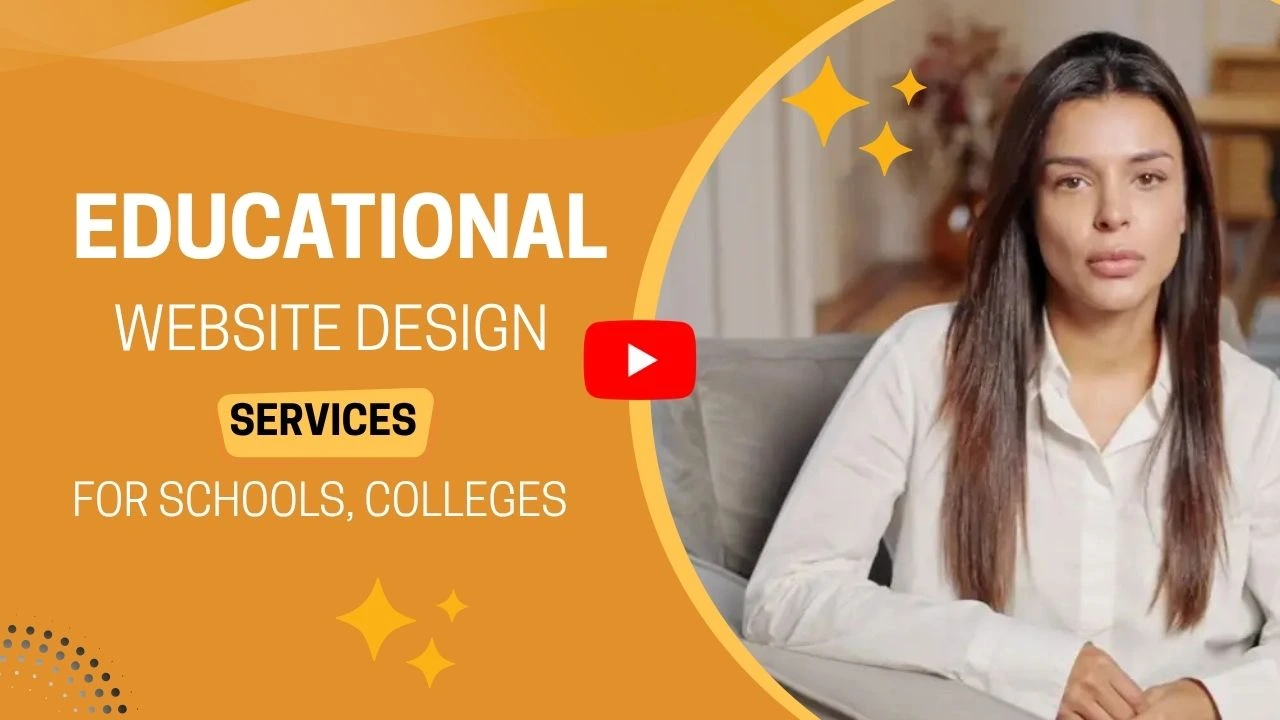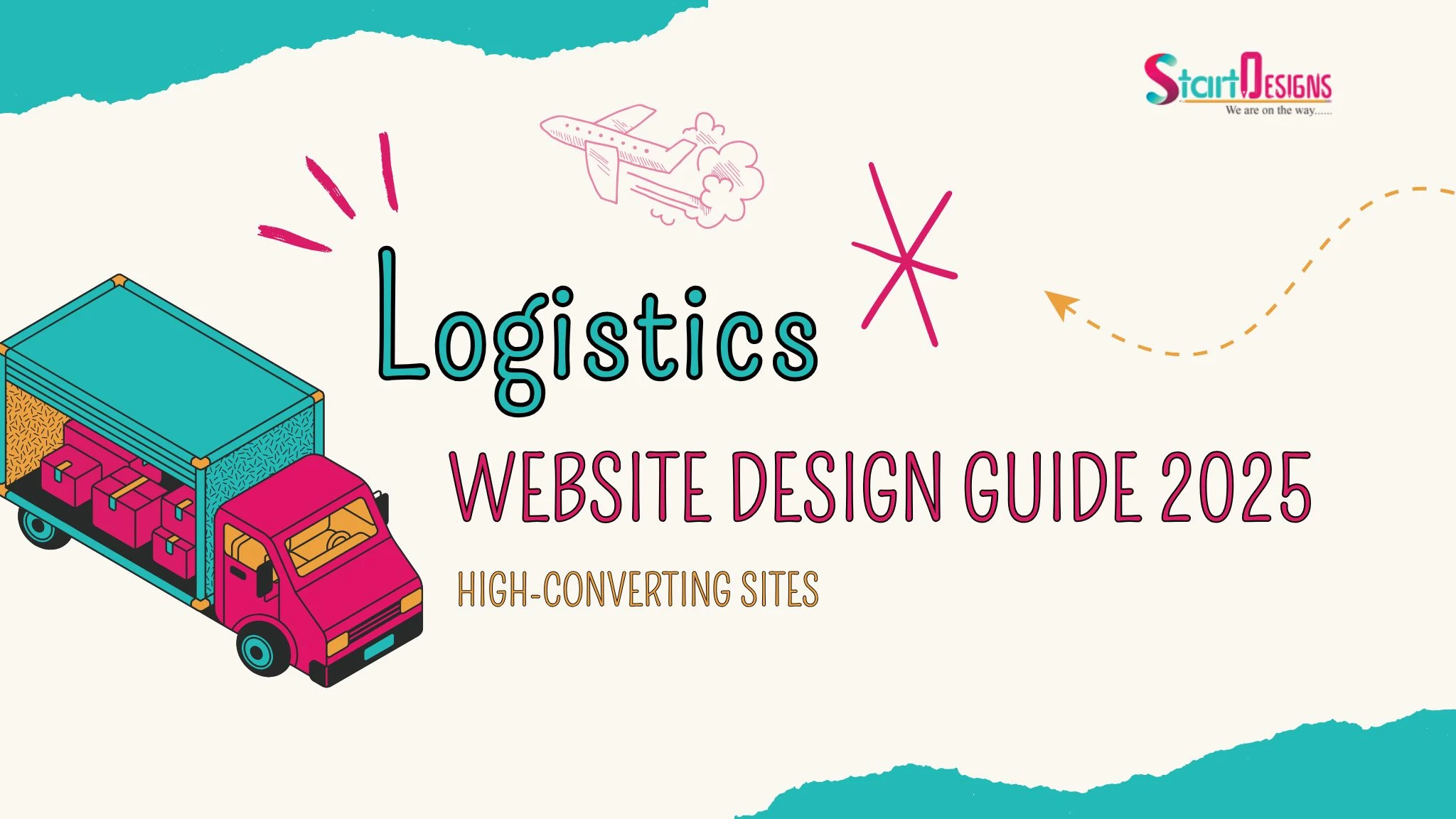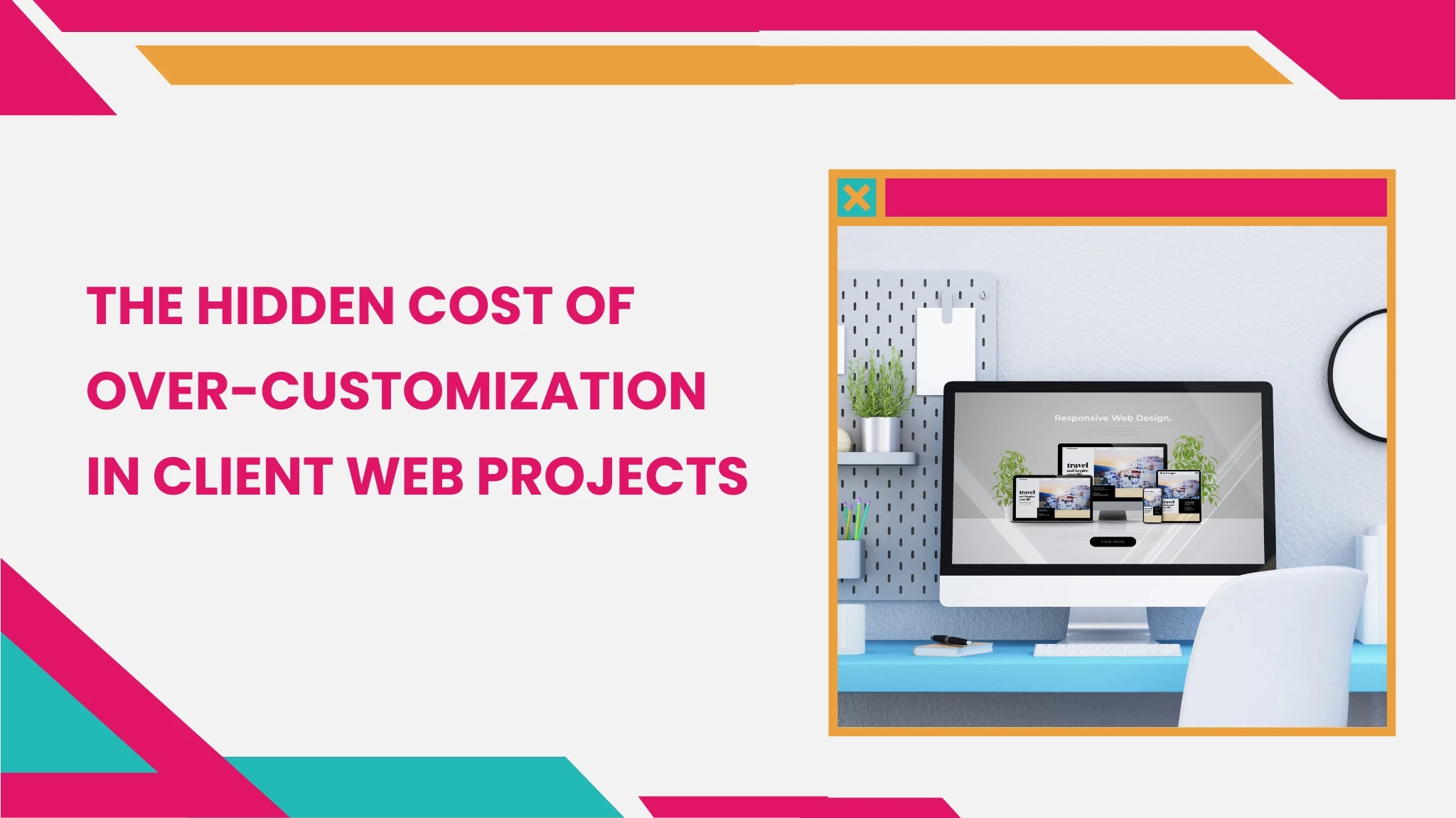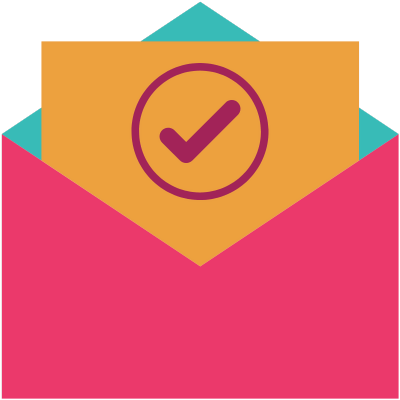Introduction
In today’s digital age, having a well-designed educational website is crucial for educational institutions. Whether you’re a school, college, or online learning platform, your website should be engaging, user-friendly, and functional. Hiring the right educational website design agency is the first step in ensuring that your website meets these standards.
But with so many options available, how do you find the right agency for the job? This guide will take you through 10 essential steps to hire the best agency for custom educational websites that meet your institution’s needs.
Website Design Services for Schools, Colleges & eLearning
Step 1: Define Your Website’s Purpose and Goals
The very first step in hiring a web development agency is defining what you need from your website. Whether you’re building a simple informational page or a more complex learning management system (LMS) integration, it’s important to know your goals.
Why It’s Important
A clear understanding of your educational website’s objectives allows you to effectively communicate your needs to the agency. This also helps to set the tone for the entire development process.
Example
- Informational Websites: A basic website that showcases educational programs, faculty, and admissions information.
- Interactive Learning Platforms: A custom-built LMS integration where students can register for courses, track progress, and access learning materials.
By identifying the goals from the start, you can find an agency that specializes in developing custom educational websites tailored to your needs.
Step 2: Look for Agencies with Experience in the Educational Sector
Not all agencies are familiar with the specific needs of educational institutions. It’s crucial to find agencies that specialize in educational website design and have experience in integrating advanced features such as LMS systems or student portals.
Why It’s Important:
Agencies with experience in the educational sector understand the challenges and requirements that come with creating websites for schools, colleges, and universities. They will also be more equipped to integrate solutions like online course registration, grading systems, and e-learning tools.
Example:
LMS Integration
Look for agencies with experience in integrating well-known platforms such as Moodle, Canvas, or Blackboard into your website.
Web Design Agency!
Step 3: Check Their Portfolio
A portfolio is one of the best ways to assess an agency’s capabilities. Look for examples of custom educational websites they’ve designed for institutions similar to yours. Pay close attention to the complexity of the projects, such as whether they have worked on websites with LMS integration, user dashboards, or e-learning functionalities.
Why It’s Important:
A strong portfolio will demonstrate an agency’s ability to handle the specific requirements of an educational website. You can also check whether they have experience working with educational institutions of similar size and structure to yours.
Example
University Websites
The agency’s portfolio might include websites for universities or schools with custom features like online enrollment, student and teacher portals, and integration with external educational tools.
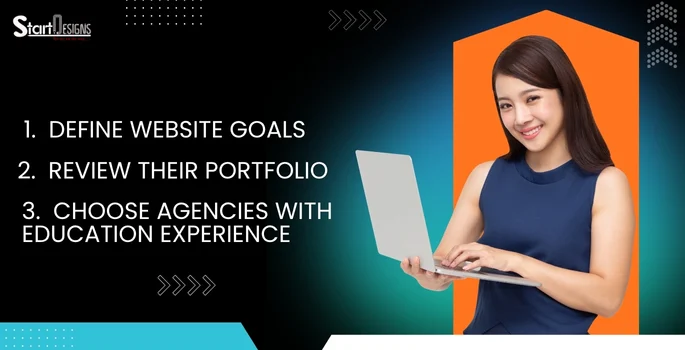
Step 4: Evaluate Technical Skills
Technical expertise is a must when it comes to educational website design. You need an agency that’s not only good at designing attractive websites but also skilled in building scalable, secure platforms that can handle high traffic and integrate educational tools.
Why It’s Important:
Your website needs to be secure, mobile-optimized, and capable of handling the large amounts of data typical in educational environments. Whether you choose an open-source platform like WordPress or a custom solution, the agency must have expertise in handling your preferred technology stack.
Example
Custom Development
If your website requires a complex, custom-built solution for LMS integration or interactive learning features, you’ll need an agency experienced in custom educational websites that can develop these from scratch.
Step 5: Review Client Testimonials and References
Client testimonials provide valuable insight into an agency’s performance. Look for reviews or case studies from educational institutions that highlight the agency’s ability to deliver successful educational website design projects on time and within budget.
Why It’s Important:
Hearing from past clients will give you a clearer idea of what it’s like to work with the agency. Are they responsive? Do they meet deadlines? Do they understand the unique needs of educational websites?
Example
Positive Reviews
A school or university that worked with an agency specializing in custom educational websites might share how they were able to integrate an LMS system and make the website user-friendly for both teachers and students.
Step 6: Assess Their Design Approach
A good educational website needs to be both functional and visually appealing. When assessing an agency, inquire about their design approach and how they ensure the site is user-friendly for students, parents, and faculty. Discuss accessibility features, mobile responsiveness, and how the design supports learning and engagement.
Why It’s Important:
An educational website’s design should cater to all types of users—students, educators, and administrators. A user-friendly, mobile-optimized website that’s also accessible to students with disabilities is essential.
Example
UX/UI Design
Look for agencies that emphasize clean, intuitive design with easy navigation. A custom educational website should be simple enough for a first-time user but robust enough to handle multiple courses, student profiles, and other complex features.
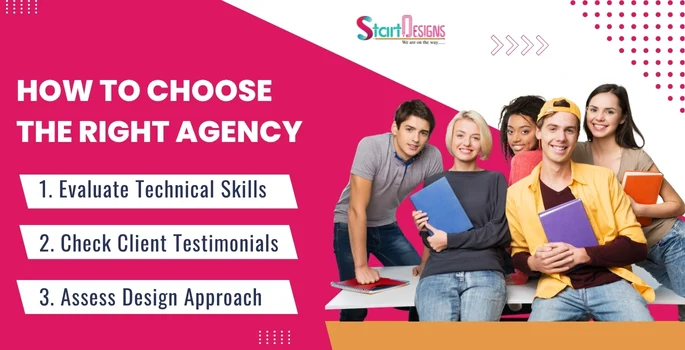
Step 7: Set a Budget and Understand Pricing Models
Building a custom educational website requires a substantial investment, so it’s essential to set a clear budget upfront. Understand how agencies charge for their services—some work on an hourly basis, while others offer fixed-rate pricing. Be sure to include potential post-launch maintenance costs, especially if your site requires ongoing updates or LMS integration adjustments.
Why It’s Important:
A clear budget allows you to filter out agencies that are too expensive or those that don’t align with your financial expectations. Additionally, you want to know if post-launch support (like website maintenance and feature updates) is included.
Example
Hourly vs Fixed-Price
Some agencies may charge hourly rates for custom educational websites, while others offer package deals that include website development, design, and support.
Step 8: Check Their Communication and Project Management Process
Effective communication and project management tools are key to ensuring that the development process runs smoothly. Ask the agency about their communication style, project management tools (like Trello or Basecamp), and how they handle revisions and feedback during the project.
Why It’s Important
Clear communication ensures the project stays on track. You’ll want regular updates and easy access to the development team to address any concerns or revisions along the way.
Example
Transparent Process
Agencies that use tools like Asana, Slack, or Monday.com are typically more organized and can provide you with real-time updates on project milestones.
Step 9: Discuss Ongoing Support and Maintenance
Educational websites require ongoing updates and maintenance to ensure that content stays fresh and functionality remains intact. Make sure the agency provides post-launch support and understands the technical requirements for maintaining LMS integration and other essential features.
Why It’s Important
Ongoing support ensures that the website remains secure, up-to-date, and functional as your educational institution evolves.
Example
Post-Launch Maintenance
An agency may offer a support package that includes regular updates, security patches, and content management. This is especially important for websites with custom educational websites and complex integrations like LMS systems.
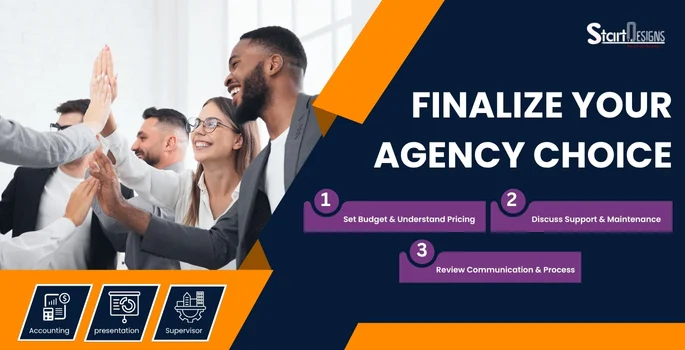
Step 10: Trust Your Instincts
After all the research and interviews, trust your instincts. Choose an agency that not only meets your technical and design needs but also aligns with your institution’s values. A good working relationship will make the development process smoother.
Why It’s Important
A strong, collaborative relationship with your agency ensures the project’s success and helps you navigate any challenges along the way.
Example
Cultural Fit
You might feel more comfortable working with an agency that has a track record of delivering custom educational websites for institutions similar to yours, and whose team is responsive, reliable, and professional.
Conclusion
By following these 10 steps, you’ll be well on your way to hiring an agency that can create a custom educational website that aligns with your institution’s needs. Whether you’re looking for simple educational website design or complex LMS integration, take the time to choose the right partner. The right agency will not only bring your vision to life but will also provide ongoing support to ensure your site remains effective and up-to-date.
Ready to hire a web development agency? Contact us today for a free consultation, and let’s get started on building your ideal educational website!
About the author
Popular Posts

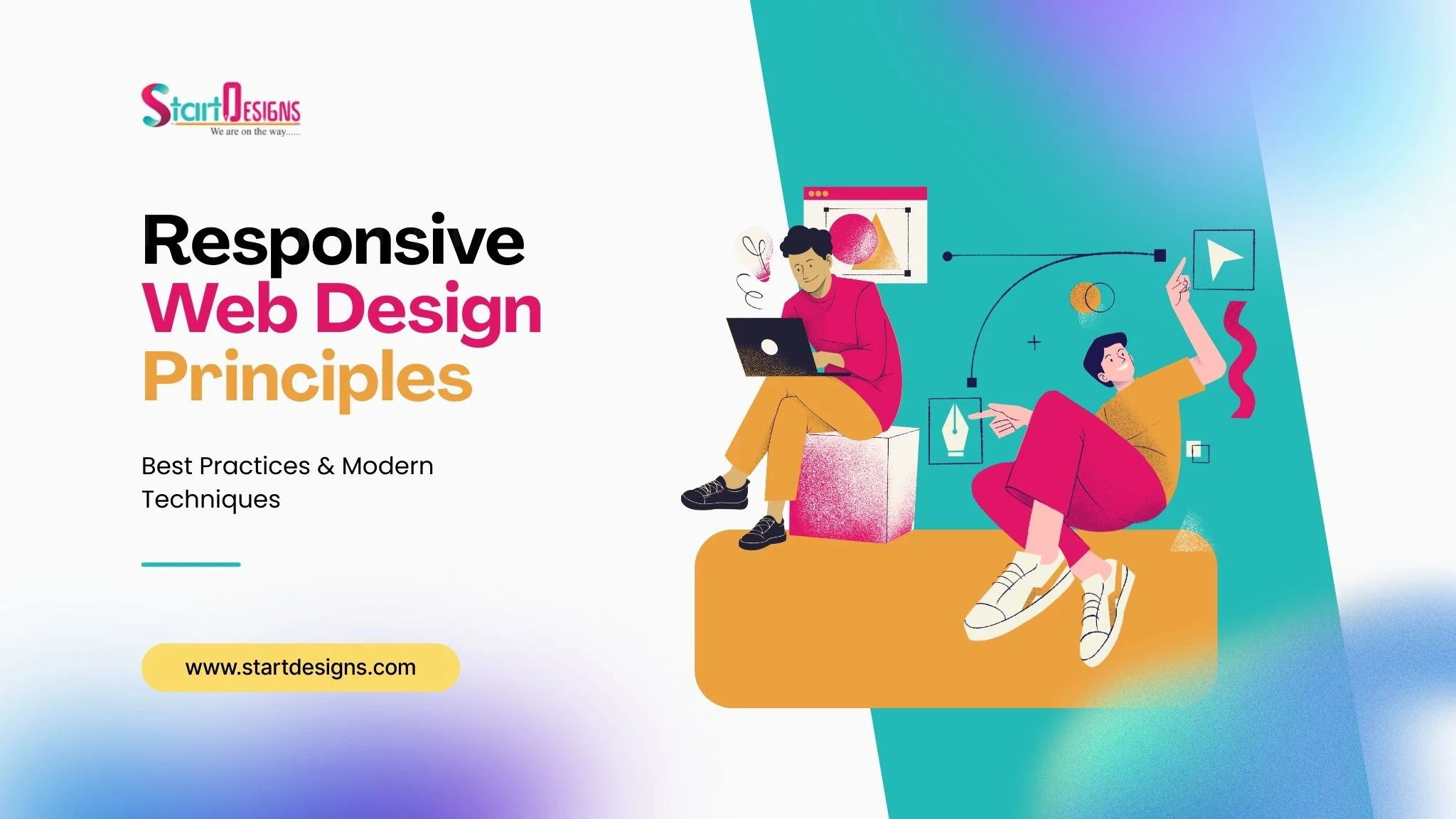
Responsive Web Design: Principles, Best Practices & Modern Techniques
December 4, 2025- 5 Min Read


